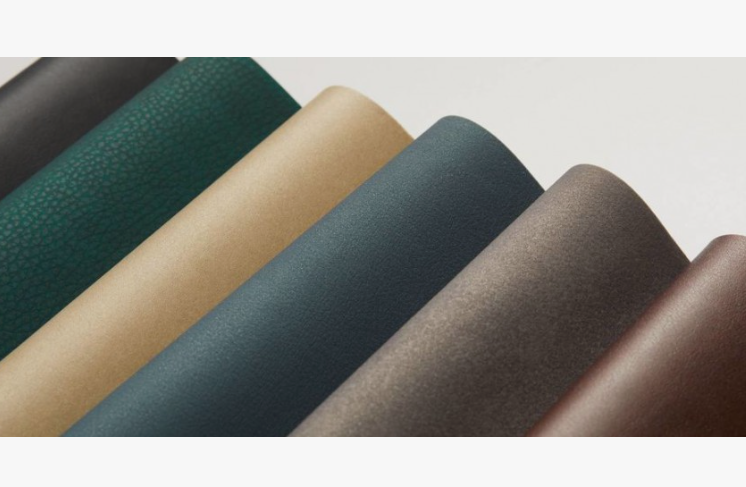The Bio-based leather market size is projected to reach USD 805.0 million in 2025, and is expected to expand to USD 1,525.4 million by 2035, growing at a CAGR of 6.6%.The bio-based leather market is growing due to rising demand for sustainable, cruelty-free materials, stricter environmental regulations, and brand adoption in fashion, footwear, and automotive. Innovations in plant and mycelium-based feedstocks are boosting durability and scalability, making bio-leather a viable alternative to traditional leather.
📌 Download your Sample Report Instantly - Corporate Email ID required for priority access:-https://www.datamintelligence.com/download-sample/bio-based-leather-market
MARKET SEGMENTATION-
By Source, Feedstock
-Pineapple Leaf Fiber (Piñatex): This bio-leather comes from agricultural waste. It is lightweight, flexible, and eco-friendly. Its popularity in footwear and accessories is growing due to its sustainability and appealing look.
-Cactus Leather (Desserto): Cactus-based leather is known for its durability and water resistance. Both fashion and automotive brands are adopting it. It combines aesthetics with strength.
-Mushroom/Mycelium Leather: This is one of the fastest-growing segments. Mycelium leather offers high scalability and a texture similar to animal leather. Major fashion houses and startups are investing heavily in this category.
-Fruit Waste (Apple, Grapes, Banana): Using by-products from the fruit industry helps create circular economies and reduces material waste. These materials are gaining traction in handbags, wallets, and small accessories.
-Others: Innovations in cork leather, algae-based composites, and hybrid bio-polymers are broadening the range of materials.
By End Use
-Fashion & Apparel: This is the largest segment, driven by global brands adopting eco-friendly materials for clothing, handbags, and outerwear. Sustainable fashion movements are pushing growth in this area.
-Footwear: Sneakers and casual footwear brands were among the first to use bio-leather, especially targeting younger, eco-conscious consumers.
-Automotive Interiors: Automakers are increasingly using bio-leather for seats, trims, and panels, as part of their carbon neutrality goals. Premium electric vehicle makers are particularly leading this trend.
-Furniture & Upholstery: As consumers seek sustainable home furnishings, bio-leather is appearing in sofas, chairs, and decorative items.
-Accessories & Luxury Goods: Wallets, belts, watch straps, and designer handbags are being made with bio-based materials, as luxury brands strive to showcase their green innovations.
Market Drivers:-
-Sustainability and Consumer Preference:- Growing awareness of animal welfare, environmental pollution, carbon emissions, deforestation, and water use is leading consumers to choose cruelty-free, plant-based materials. Fashion brands and car manufacturers are responding to this change.
-Regulatory Pressure and ESG Policies :- Governments and regulatory bodies are increasingly putting in place policies that support sustainable materials, cut emissions, and punish pollution. ESG (Environmental, Social, and Governance) factors are influencing both investors and companies.
-Technological Innovation :- Improvements in material science, fungal fermentation, biofabrication, nanocellulose, coatings, and hybrid composites are enhancing durability, water resistance, texture, and production scalability.
-Brand Collaboration and Luxury Segment Adoption :- High-end fashion labels and luxury brands are using bio-leather alternatives to stand out, attract eco-conscious customers, and lessen supply chain risks linked to animal leather. Partnerships help increase production.
-Availability of Waste and Alternative Feedstock :- Using agricultural by-products, like pineapple leaves, fruit peels, and mushroom biomass, promotes circularity and lowers raw material costs.
-Increasing Investment and Funding :- Startups in the bio-leather sector have raised money to expand, enhance production capacity, and improve their research and development efforts.
Key Players-
-Ananas Anam (Piñatex) – pineapple leaf fiber-based bio-leather.
-Bolt Threads – Mylo (mycelium-based material) etc.
-Desserto – cactus-based leather alternative.
-Modern Meadow – lab biofabricated leathers (e.g. Modern Synthesis, BIO-VERA etc.).
-MycoWorks – fungal / mycelium leather materials.
-Natural Fiber Welding, Vegea, Ultrafabrics, Ecco Leather – various bio-leather or alternative materials, coatings, hybrids.
Recent development in 2025-
-Modern Synthesis raised USD 5.5 million in early 2025 to expand production of bio-based textiles, including leather alternatives, using nanocellulose from fermentation.
-MCM, a luxury brand, launched a vegan tote bag made from Mirum, a plant-based leather alternative, in late 2024. The product has a carbon footprint much lower than traditional leather.
Beyond Leather Materials partnered with Covestro to introduce “LEAP,” an apple-waste-based leather alternative with over 85% bio-based content for accessories and automotive interiors.
-Tata International launched Phoenix Leather under its Earthcare Leather range, with a focus on sustainable, bio-based leather.
-Bridge of Weir introduced technologies like BioTAN and FreeTAN for bio-based leather applications.
Benefits of the report:-
-Enables strategic planning by revealing which materials, regions, and applications are likely to grow fastest.
-Supports competitive benchmarking: see what leading players are doing (materials, finishes, partnerships).
-Provides trend forecasting, enabling early identification of emerging technologies (e.g. fungal mycelium, fruit waste, lab-grown leather).
-Helps risk mitigation, by pointing out limitations (durability, cost, regulatory issues) ahead of time.
-Assists in investment decisions & partnerships: where to invest R&D, where to place production, where collaborations will make sense.
Contact Us:
Company Name: DataM Intelligence 4market Research LLP
Contact Person: Sai Kiran
Email: Sai.k@datamintelligence.com
Phone: +1 877 441 4866
Website: https://www.datamintelligence.com



